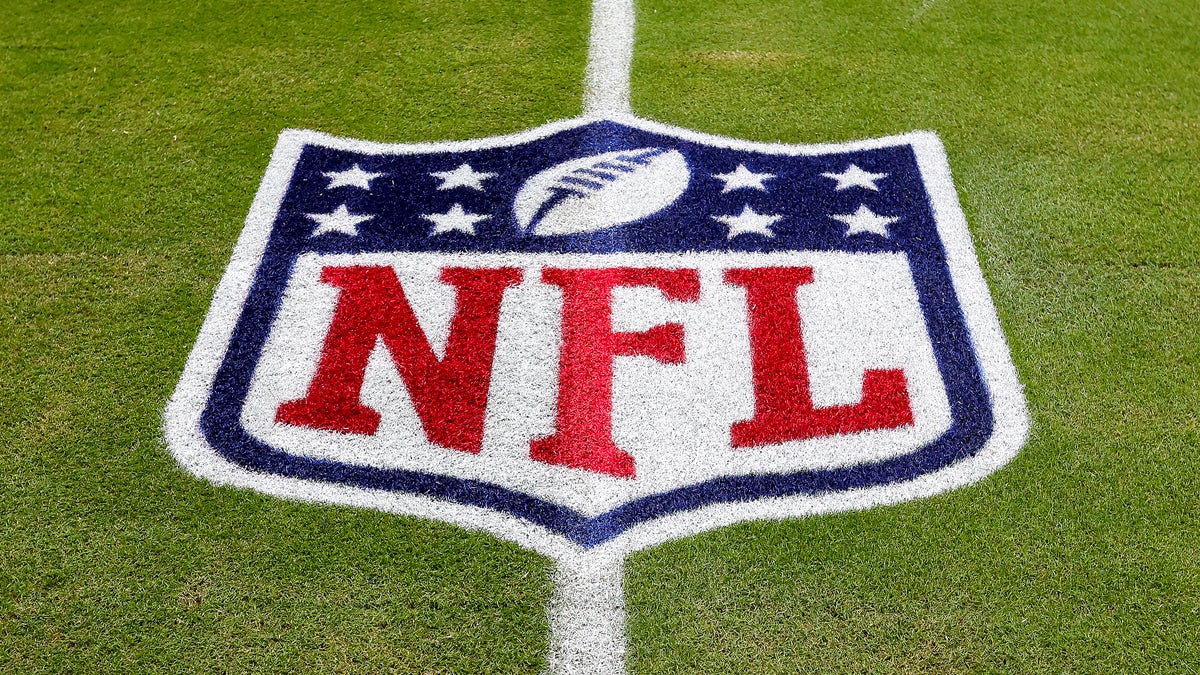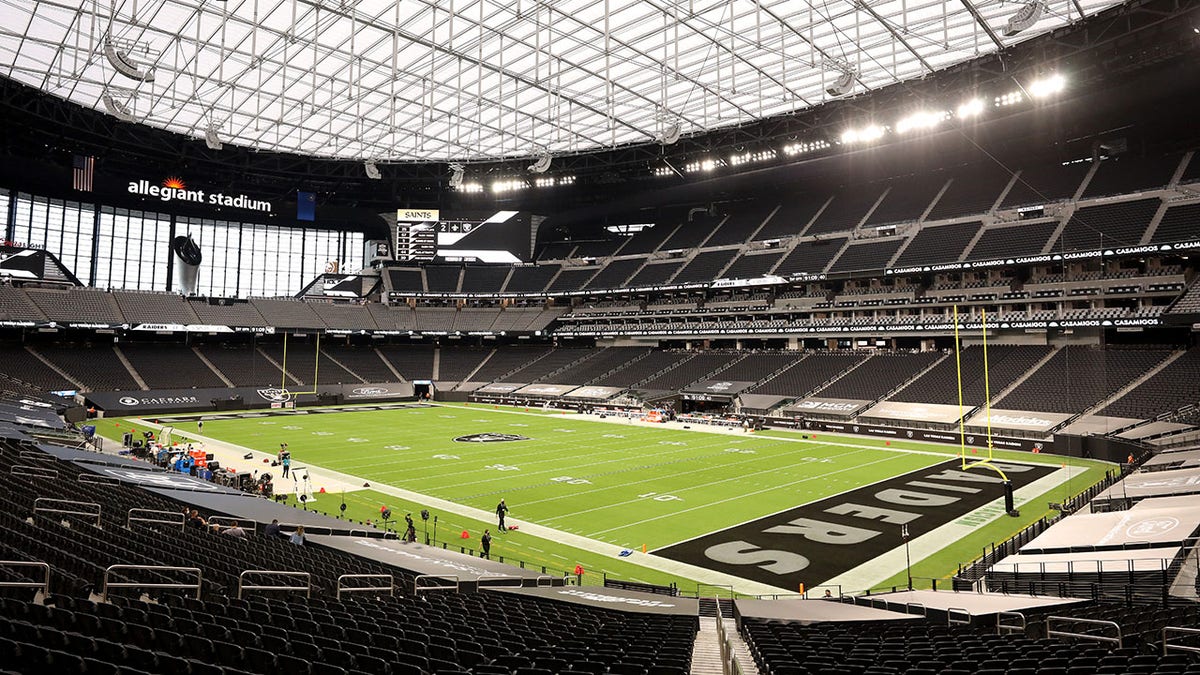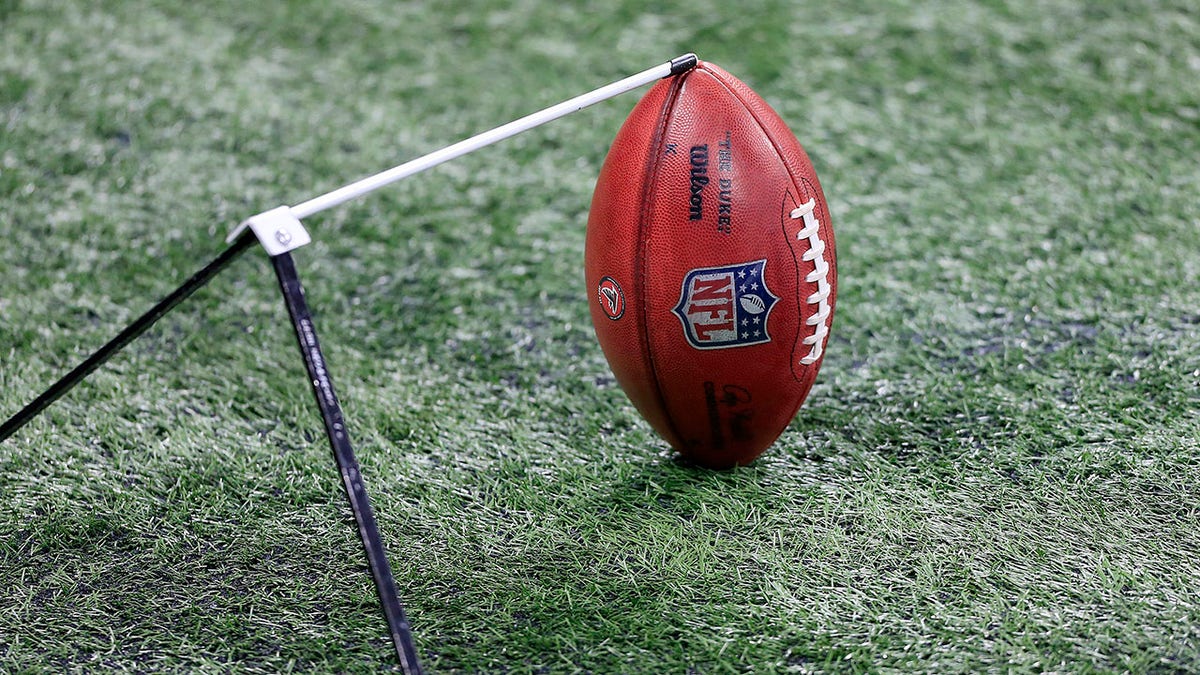Fox News Flash top sports headlines for April 20
Fox News Flash top sports headlines are here. Check out what's clicking on Foxnews.com.
Non-contact injuries across the NFL happened at a higher rate on artifical turf compared to natural grass fields during the 2022 regular season, according to data released this week by the NFL Players Association.
Last year, the league attempted to put an end to the debate by releasing data showing that rates of non-contact injuries to lower extremities were statistically the same on artificial turf and grass.
A majority of players have spoken out on their preference for natural grass over turf. Many NFL athletes argue it is not only safer but puts less of a strain on the body.
CLICK HERE FOR MORE SPORTS COVERAGE ON FOXNEWS.COM

The NFL logo on the field prior to a game between the Green Bay Packers and Miami Dolphins at Hard Rock Stadium Dec. 25, 2022, in Miami Gardens, Fla. (Megan Briggs/Getty Images)
Player's union President J.C. Tretter wrote an essay noting that the injury rate on natural grass surfaces dropped from 2021 to 2020. Tretter addressed the 2021 data by saying the rates being essentially the same that year was an "outlier."
"Instead of following the long-term data (which is clear on this issue), listening to players and making the game safer, the NFL used an outlier year to engage in a PR campaign to convince everyone that the problem doesn't actually exist," Tretter wrote in a letter posted to the NFLPA website.
"In short, last year, the gap — much like the NFL's credibility with players on this issue — was as wide as it has ever been," Tretter added, "proving that (as the NFLPA suspected) 2021 was, in fact, an outlier. Now, 10 of the previous 11 years show the same exact thing — grass is a significantly safer surface than turf."
Jeff Miller, the NFL's executive vice president of communications, public affairs and policy, responded on Thursday by saying that "there are no simple answers" on the issue.

The field prior to a game between the Las Vegas Raiders and the New Orleans Saints at Allegiant Stadium Sept. 21, 2020, in Las Vegas. (Christian Petersen/Getty Images)
"The NFL and the NFLPA have access to the same injury information, which is collected by independent experts and shared at the CBA-mandated Joint Field Surface Safety and Performance Committee meetings," Miller said in the statement.
"The committee, including the NFLPA's experts, believe that simply playing on natural grass is not the answer to this complex challenge. Some artificial turf surfaces have a lower injury rate than some grass fields, and some grass fields have a lower injury rate than some artificial surfaces.
"Our goal is to decrease injuries on all surfaces. There are no simple answers, but we are committed to the substantial, ongoing work with the players and their expert advisers to make the game safer."
METLIFE STADIUM TO CHANGE TURF IN 2023 AMID PLAYER COMPLAINTS: REPORT
IQIVA, a third-party organization, compiled and analyzed the injury data for the league and the player's union.
Aside from players and the union, some coaches and agents have also called for all 30 NFL stadiums to go to natural grass. However, one of the more outspoken team owners, the Dallas Cowboys' Jerry Jones, has already dismissed the idea.
"Our league stats don't see issues with the type [of] surface that we have [at AT&T Stadium] as opposed to natural grass," Jones said. "We don't see issues. No facts bear that out."

A football on the sidelines during a game between the Atlanta Falcons and the Las Vegas Raiders Nov. 29, 2020, at Mercedes-Benz Stadium in Atlanta. (David John Griffin/Icon Sportswire via Getty Images)
IQIVA's joint surface committee evaluates injuries that occur without contact and could potentially be attributed to the surface itself, specifically to the knees, ankles and feet.
Bank of America Stadium, home of the Carolina Panthers, recently underwent a renovation and made the switch from natural grass to artifical turf prior to the start of the 2021 season. In Week 16, the players association accused the league of allowing a game to be played even after the stadium's turf failed the league's standard pregame test.
According to Tretter, the NFL informed the union that the field reached acceptable conditions at some point in the first half.
"But the fact remains that the players in that game had to play on a field that the league acknowledges was not safe," Tretter said. "That is beyond frustrating to players and unacceptable in the eyes of our union."
CLICK HERE TO GET THE FOX NEWS APP
The sides will continue discussions on the issue in arbitration.
"The union's assertions are incorrect," Miller said in Thursday's statement. "But we will make our arguments in the appropriate CBA-mandated grievance process, which is ongoing."










































